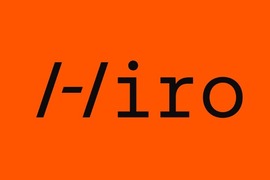
Hiro Systems
Hiro Systems is a leading developer tooling company for Stacks, the network that enables smart contracts and decentralized applications on Bitcoin. Founded in 2017, Hiro empowers developers to build next-generation Web3 applications on Bitcoin, expanding the functionality of the world’s most secure blockchain. The company offers a comprehensive suite of developer tools designed to unlock the full potential of Bitcoin through smart contracts, digital assets, and decentralized apps. With over 350 million monthly API requests and thousands of active users, Hiro supports the growing Stacks ecosystem by making it easier to build, deploy, and scale Bitcoin-based applications. As a core contributor to Stacks, Hiro plays a key role in advancing the vision of a user-owned internet built on Bitcoin, collaborating with independent developers, entities, and community members around the world.
ABOUT HIRO SYSTEMS
Hiro Systems empowers developers to build a better digital future with best-in-class Bitcoin development tools and open-source software.
As a core contributor to the Stacks ecosystem, Hiro builds and maintains essential infrastructure, open-source libraries, and developer-focused products such as the Stacks Wallet and Stacks Explorer.
The company provides a hosted platform and open-source tools for smart contract development on Bitcoin, helping developers easily build, test, and scale Web3 applications.
Backed by leading investors including Union Square Ventures, Lux Capital, Winklevoss Capital, Naval Ravikant, and Digital Currency Group, Hiro continues to drive innovation at the intersection of Bitcoin, smart contracts, and decentralized applications.
KEY PLATFORMS
Hiro Platform – An all-in-one developer platform for building, testing, debugging, deploying, and scaling Stacks and Bitcoin dApps, offering a managed and scalable environment without the complexity of local setups or infrastructure management.
Clarinet – A command-line interface (CLI) for creating, testing, debugging, and deploying Clarity smart contracts to a local Stacks chain. It supports Clarity formatting, mainnet simulation, sBTC integration, and seamless version upgrades.
Chainhooks – Enables developers to build reorg-resistant, event-driven applications for Bitcoin and Stacks. It allows the creation of custom predicates to monitor blockchain events and trigger automated on-chain or off-chain actions.
Bitcoin Indexer – Provides high-performance indexing infrastructure for Bitcoin standards like BRC-20 and Rune assets, designed for integration within Chainhook workflows and decentralized application architectures.
Stacks.js – A comprehensive JavaScript library that simplifies interaction with the Stacks blockchain, supporting authentication, transactions, wallet integration, storage, and smart contract interactions for Web3 applications.
Ordinals Explorer – A developer-friendly tool to query and explore Bitcoin inscription and Ordinals data, ideal for dApps that display or track NFTs and digital artifacts on Bitcoin.
